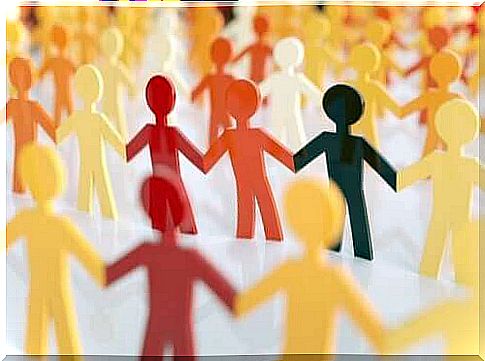Is Charity Equal To Solidarity?

The widening gap between rich and poor in today’s society means that a large part of the population has to cope with very limited resources. Every day, we see in the news pictures of all the horrors that are happening to our fellow human beings all over the world. In this sense, concepts such as charity and solidarity are particularly important today.
To what extent are you responsible for other people’s lives and destinies? We live in a world where solidarity is becoming increasingly important. Gradually, people are becoming more aware of what is happening in the world around them. That is why we want to dedicate today’s article to solidarity and social justice.
Background information
The system of support for society has evolved a lot over the years, changing from one model to another. According to Picornell, MA (2013), these models are:
- Charity
- Social services
- Social assistance
- Social assistance
- Social security
In the beginning, the state was not responsible for protecting its citizens. All kinds of help for the disadvantaged came through charity. Over time, this model has evolved quite a bit, and today the state is responsible for providing social services to its citizens to ensure their well-being.
In the past, charity included giving extra food or clothing, caring for orphans, and helping patients in the hospital. Such services were provided by individuals and charities. People believed that poverty was either justified (due to illness or loss of parents) or unjustified (due to evil or laziness).
Charity, solidarity and social justice
According to Giraldo and Ruiz-Silva (2015), the concept of charity is related to the idea of giving alms. It has nothing to do with justice or equality, nor does it seek to empower its recipients. Instead, it brings satisfaction to the person helping. However, it is important to remember that governments are ultimately responsible for protecting their citizens.
On the other hand, solidarity, although often associated with philanthropy, charity, altruism, and brotherhood between people (Vargas-Machuca, 2005, quoted in Giraldo and Ruiz-Silva 2005), is quite different from the description above.
Solidarity is people’s reaction to today’s contradictions (Barcena, 2006). Solidarity includes everything from temporary assistance to daily and constant effort to alleviate human suffering and fight for justice.

The struggle for social justice
The term social justice comes from the world’s sense of inequality and the need to build a better society.
Today, the concept of “social justice” is complex and dynamic. For the United Nations, social justice is a key principle for peaceful and prosperous coexistence within and between countries. The fight for global social justice is at the heart of the UN mission to promote development and human dignity.
The world is constantly changing. As a result, it is vital to adopt attitudes that promote equality and justice. It is not a temporary remedy for a difficult situation, but the provision of people with the necessary tools and resources to improve their own lives.
In short, social justice should be a dynamic project that is never fully completed or discontinued (Griffiths, 2003). We should constantly strive to build a better world for everyone.









